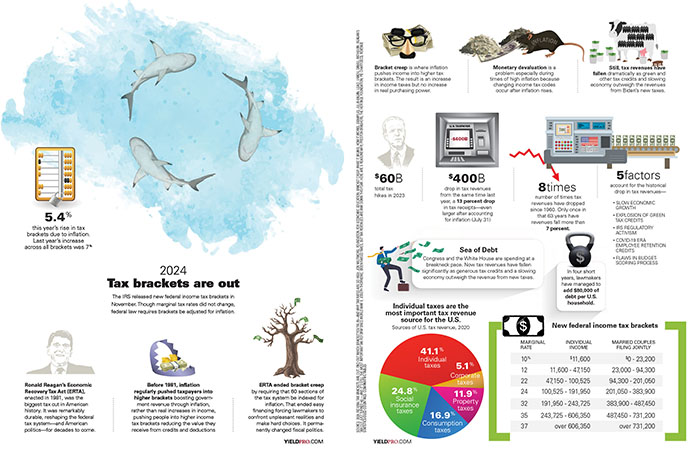And, thanks to the support of the three-year-old Georgia Apartment Industry Education Foundation (GAIEF), many of them are receiving university-level instruction in the Peachtree State to better prepare them for jobs in the rental sector of the multifamily industry.
“If you want to see education in action, come to Georgia,” said Debbie Phillips, lead instructor in the residential property management program at Georgia Institute of Technology (Georgia Tech) and executive director of GAIEF, which is dedicated to providing support for the development of apartment industry professionals through education and internships. The private, non-profit organization also promotes career opportunities within the apartment industry by attracting people to the profession and informing them about its numerous career opportunities.
“At one time, it was an unsophisticated industry, but now there is a demand for more qualified people. We are adding a level of professionalism through classrooms and internships,” Phillips said, explaining that GAIEF is paying instructor salaries in pilot property management programs at Georgia Tech in Atlanta and the University of Georgia (UGA) in nearby Athens. Cash-strapped universities can’t fund programs like those without such public/private partnerships, she said.
In addition to becoming ever more sophisticated, multifamily companies are in growth mode, spurred by rapid increases in rents and occupancy as the apartment industry recovers from the economic downturn of the past four or five years. As apartment builders and managers expand, opening new offices in new markets to take advantage of improving fundamentals, it’s become harder and harder to find employees, from the on-site to the executive level. That personnel crisis comes at a perfect time for the students in the programs for which GAIEF provided start-up funding, Phillips said.
UGA’s program began in 2004 with a pilot course, Introduction to Property Management, under the direction of Dr. Anne Sweaney, who heads up the university’s Department of Housing and Consumer Economics. Some 750 students have completed that class since its inception and another 140 are currently enrolled in it. Last fall, the pilot program added Legal Issues in Residential Property Management to its curriculum. Russell James, PhD in consumer economics and a J.D. specializing in property law, is teaching that class now to about 50 students.
Sweaney expects the university will approve additional classes by January to be offered beginning spring semester 2007 in the residential property management emphasis in the housing major in the Department of Housing and Consumer Economics. Additional classes will include Leasing Strategies in Residential Property Management, Managing Non-Profit and Special Community Housing, Residential Property Management Technology and Simulation and Multifamily Housing
in Society, rounding out the residential property management emphasis, which was approved by the university in September.
The first residential property management class at Georgia Tech was offered in the fall of 2005. “We went from 20 students in the first class to 40 this semester,” said Phillips. Her goal for the Georgia Tech program, which is under the direction of Dr. Roozbeh Kangari, is to create a certificate program that takes an in-depth look at multifamily construction and management.
That program will include Introduction to Residential Property Management, Principals of Residential Property Management, Best Practices/Lessons Learned in Residential Property Management and Building Construction and a fourth class that still is under development that will focus on specialty types of housing like student, affordable and senior housing, said Phillips, who earned her BA in consumer journalism and a Master of Science degree with a major in housing at UGA. Phillips founded The Quadrillion, a full-service management firm that specializes in training, marketing and image development for multifamily companies, in 1997.
“I call my class a talent supply chain that is constantly feeding into the industry,” said Phillips. “My goal as lead instructor for the program is to create awareness that there’s an exciting career opportunity in the apartment industry to start out at any level,” she said, giving as an example an accounting major in her class who recently interviewed with the Lane Company for an accounting position. A young woman who took her class as a graduate student recently snagged a job as a project manager at Lane, making more than $50,000/ year.
Sweaney and Phillips are pleased with the apartment industry involvement in the property management classes they teach. Guest lecturers at the universities have included Lane Company Founder George Lane and CEO Bill Donges, Walt Lamperski, senior VP of Steven D. Bell & Company’s multifamily division; Jerry Warshaw, CEO of Warshaw Properties and current GAIEF president; Ronnie Martin, Director of Maintenance for RAM Partners, and Tom Wilkes, president of Post Apartment Homes at Post Properties.
The late Gerald A. Blonder, whose desire to enhance the level of professionalism in the industry resulted in GAIEF’s creation, was able to see his dream realized and speak to the classes it spawned before his death last February. Blonder, who founded the privately held, Atlanta-based apartment development and management company Focus Group, Inc., with his son Michael in 1992, contributed $250,000 in seed money for the foundation that was matched by contributions of $10,000 each from 25 other apartment companies that do business in Georgia.
Lane Company and Post Properties support the programs by offering internship opportunities to students in residential property management. Lane Recruiter Carolyn Morse, who graduated from UGA in 2005 with a double major in housing and consumer economics and was a student in the university’s first residential property management class, runs Lane’s internship program. Lori Addicks, who spent 13 of her 21 years as a human resources practitioner as a senior consultant for The Coca-Cola Company before joining Post in 2004 as VP of Learning and Development, oversees the REIT’s internship program.
Morse, who joined Lane about a year ago, just wrapped up the company’s second summer program. “The program that we have during the summer is fairly structured. We had the interns for 12 weeks and they had assignments every week. We had two interns in 2005 and eight this past summer,” she said.
“They were with us from the end of May until the middle of August. Four of them were onsite, doing leasing and shadowing our maintenance men and our property managers and did everything you could imagine onsite. The other four were spread around our corporate office. One, in our public housing portfolio, shadowed one of the project managers. We had one in HR that shadowed me and learned about recruiting and then we had one in IT and he’s still with us. He decided to stay on full-time. And we had a grad student in investment and development.”
Every Wednesday, the interns had a “Lunch-n-Learn Day” when either a president or VP at one of Lane’s companies spoke with them from 10 a.m. to noon, after which Morse took the students to lunch and got their feedback on the morning’s presentation. “And every other Friday, we had a fun day. We would either take them out to one of the new construction sites or take a day to shadow marketing or a regional manager. We also had a day when we went out to our service school where our maintenance guys go and train and we did some drywall work. We burned a hole in the wall and patched it and also learned what the service guys do on a day-to-day basis,” she said.
At the end of the summer, the interns went out into the community to record their likes and dislikes as part of Lane’s effort to discover the preferences of the Echo Boomers in its Atlanta market. “Some of them even went back to their universities and did the presentation that they did for us in their own classes at the beginning of the school year,” said Morse.
Last summer, the Lane internship program included students from UGA, Georgia Tech and Georgia Southern University in Statesboro. Some of them earned course credits and others just chose to do it and put it on their resumes for the future, but all of them were paid for their work at Lane. The students were required to submit applications and interview for positions in the internship program. They earned an hourly wage during their 12-week apprenticeships. The interns that worked on-site also were eligible for commissions.
Post Properties’ residential property management internship also wrapped up its second summer session this year. Six students participated in the eight-week program in 2005 and 13 participated in 2006, drawn from six different universities — Virginia Polytechnic Institute and State University (Virginia Tech) in Blacksburg, Va.; Washington and Lee University in Lexington, Va.; Clemson University in Clemson, S.C.; Florida State University in Tallahassee, Georgia Tech and UGA.
Most of the interns, all rising seniors with graduation dates as early as the conclusion of their internships through May of 2007, were recruited at job fairs by Post Director of Recruiting Juanita Alford and the area VPs in Post’s regional offices in the Mid- Atlantic, Southeast and Southwest, who would act as field supervisors for the interns’ on-site training.
The program that lasted from the beginning of June until the end of July kicked off with one day of online self-study followed by a week in Atlanta, where the interns received training that would equip them to work on-site as leasing consultants for the balance of the internship. Then they were deployed to Post’s Tampa, Atlanta, Dallas and Washington, D.C., markets, where they were housed in Post communities for seven weeks out in the field, shadowing and observing members of property management teams to build capabilities as leasing consultants and gain exposure to other career opportunities at the property level. Post’s interns also earned an hourly wage for their work as leasing agents.
“Not only were they experiencing the business side, they were experiencing the resident side at the same time,” said Addicks, Post’s representative on GAIEF’s board of directors. She considers the program a pipeline of personnel, as well as a great opportunity for the company to learn about the housing preferences of the population born between 1977 and 1996, many of whom prefer to be called the Millennial Generation. “There was a huge focus on high- tech, from shopping online for an apartment to paying rent online and finding out about community programs once they were in there,” said Addicks.
The on-site training provides interns the opportunity to “get real world experience to relate to their classroom experiences,” she said. In Washington, D.C., for example, Area VP Laurie Bonner took the interns she supervised on a hard-hat expedition to the Alexandria, Va., site where Post is building the 145-unit Condominiums at Carlyle Square in JV with regional developer PN Hoffman as part of a mixed- use, master-planned development that also includes the 200-unit Post Carlyle Apartments and 20,000 s.f. of retail.
The interns interviewed members of Post’s regional mid-level and senior management teams, other than their supervisors, to get an even broader view of career opportunities in the industry. They also conducted team research projects that focused on marketing to the apartment dwellers of the future and presented those results to senior management in their respective markets at luncheons that marked the end of their internships. In addition, they wrote papers evaluating their overall experiences as Post Properties interns, which helped them to fulfill requirements for university credit at their respective schools.
“The internship program has given us a lot of insight. We learned from them and they learned from us,” Addicks said.















